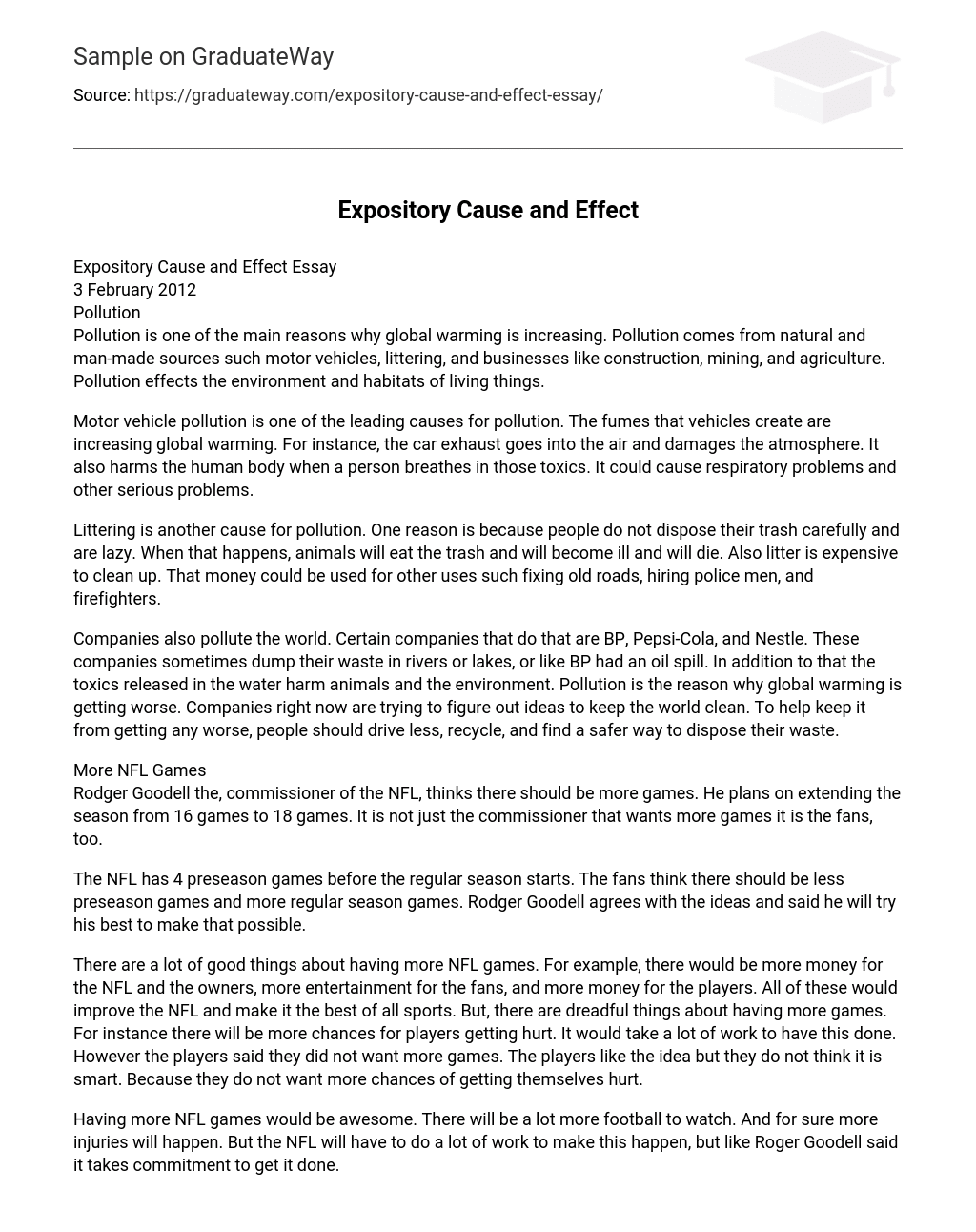Pollution, including both natural and human-made sources such as motor vehicles, littering, construction, mining, and agriculture industries, significantly contributes to the increase in global warming. It also has adverse effects on the environment and disrupts habitats of living organisms.
Motor vehicle pollution is a significant contributor to environmental pollution, especially in terms of global warming. The emissions released by cars not only pollute the air and damage the atmosphere but also pose risks to respiratory health and cause severe medical conditions.
Littering is a significant contributor to pollution due to careless disposal of trash and laziness among individuals. This practice leads to the consumption of litter by animals, posing health risks and resulting in their death. Additionally, the cleanup process for litter is costly, diverting funds that could otherwise be allocated for various purposes such as repairing deteriorated roads, recruiting additional police officers, and supporting firefighters.
Companies like BP, Pepsi-Cola, and Nestle bear responsibility for polluting the environment through activities such as waste dumping in water bodies, as seen with incidents like BP’s oil spill. The release of harmful pollutants into the water not only damages animals and the environment but also contributes significantly to global warming. In order to preserve a clean environment, companies are making efforts to create strategies. To prevent further degradation, individuals must engage in actions such as reducing driving, recycling, and adopting safer approaches to waste disposal.





